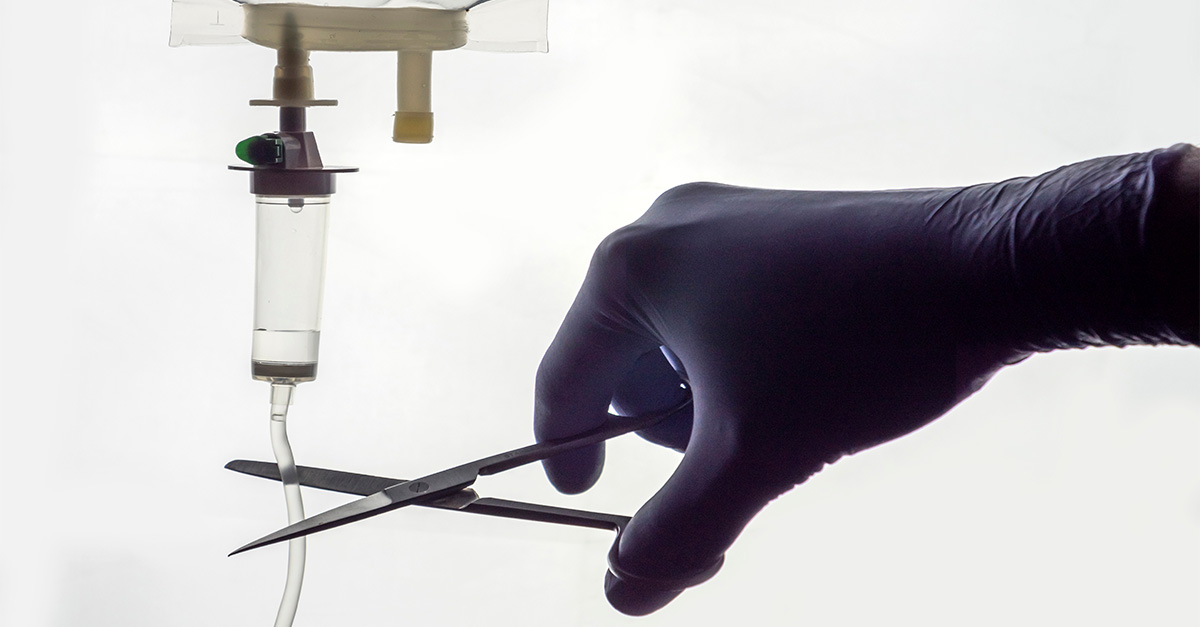


Get a free copy of Parental Rights & Education when you subscribe to our newsletter!

“That made me feel like my life was worthless or a problem that could be solved if I chose MAID.”
–KATHRIN MENTLER
As Canada debates whether to extend euthanasia to people struggling with mental health problems, a woman seeking psychiatric help for suicidal thoughts was asked by hospital staff if she had considered the nation’s assisted suicide program.
Kathrin Mentler entered Vancouver General Hospital seeking help because of suicidal thoughts. She went to the hospital “because I didn’t want to get into a situation where I would think about taking an overdose of medication.”
She explained, “That day my goal was to keep myself safe. I was thinking of maybe trying to get myself admitted to hospital because I was in crisis.”
When she spoke to a hospital staff member, she was told that there were no beds and there would be a long wait until a psychiatrist could assist her. Mentler was shocked by what the staff member asked her next: “Have you considered MAID?” the employee asked. MAID stands for Medical Assistance In Dying and is Canada’s euthanasia program.
Mentler stated, “That made me feel like my life was worthless or a problem that could be solved if I chose MAID.”
Vancouver Coastal Health, which runs the hospital, apologized for any harm but claims the question was asked to see if Mentler was at risk of hurting herself. Mentler cast doubt on this explanation, arguing that an employee spoke about the relief she would feel, as was the case when another patient chose euthanasia.
Mentler also noted, “MAID for mental health is not legal yet, so giving someone the specifics of the process seems wrong. How can this be standard procedure for suicide crisis intervention?”
Two years ago, Canada passed laws opening MAID up to those who are mentally ill; that change was set to go into effect earlier this year but was delayed until 2024 while Parliament studies the issue.
Mentler’s experience echoes a criticism shared by Rose Finlay, who is paralyzed from the neck down. Finlay expressed on Instagram that there is a “huge and detrimental discrepancy” between the length of time to qualify for MAID and the time to receive disability funds. “I’m dying because I don’t have access to care, not because I’m terminally ill,” Finlay said.
Finlay is not the only one. Late last year, a commercial was released for MAID that depicted the last few weeks of Jennyfer Hatch, a woman who was killed by doctor-assisted suicide. Though it depicts the practice as beautiful, euthanasia was not Hatch’s original wish. A few months before choosing assisted suicide, Hatch gave an interview under a pseudonym where she said, “I feel like I’m falling through the cracks so if I’m not able to access health care, am I then able to access death care? And that’s what led me to look into MAID.”

MAID is not a rarely used program. In 2021, 10,064 people were killed through physician-assisted suicide in Canada, making it the sixth leading cause of death in Canada. The 2021 number was an increase of 32.4 percent over 2020.
Tragically, pain was not the primary reason respondents gave for choosing MAID. Over 86 percent cited the loss of ability to engage in meaningful activities. Over 57 percent of patients said pain was a reason for choosing MAID, while more than 17 percent cited loneliness or isolation as their reason for considering assisted suicide.
Of those who have been killed through MAID, over 35 percent said that they thought they were a burden on friends and family.
Legislators are now considering whether to expand the program to those under 18, giving minors say over whether they will choose MAID, even if their parents don’t provide consent.
When physician assisted suicide was first being pushed, it was marketed as only for terminally ill patients who were suffering. As we’ve seen with so many social ills, the promise of limited, specific use soon becomes a slippery slope, as Canada has shown. For all the official talk about the efficiency and superiority of the government-operated healthcare system, Canadians are being pushed to choose death long before God is ready to call them home. And now Canada’s medical establishment is eager to offer the same “care” to children.
In opening the door to euthanasia, Canada has opened the door to a dystopian society that sees human beings not as God’s image bearers but as little more than the sum total of their healthcare costs and societal burden. Canada’s single-payer medical system is starved for cash and resources, forcing it to increasingly ration healthcare — and one of the ways they’ve chosen to do that is by rationing “patients” through “deathcare,” now euthanizing thousands of them annually.
This is not just a Canadian concern. Physician-assisted suicide has already taken root in the United States and it is only a matter of time before it is expanded here as well. Christians must stand against this evil rather than believe its promises that it is only providing compassionate care to the suffering.
The decision of when people should die is outside the purview of flawed men and women. God is the One who gives life, and He alone has the authority and the wisdom to decide the right moment to take it.
The Church must be involved in public discourse and influence. That’s why we write — so our readers can be equipped to understand and pursue righteous change in the world. For more timely, informative, and faith-based content, subscribe to the Standing for Freedom Center newsletter.
Christian conservative news and issues that matter. Curated just for you!
